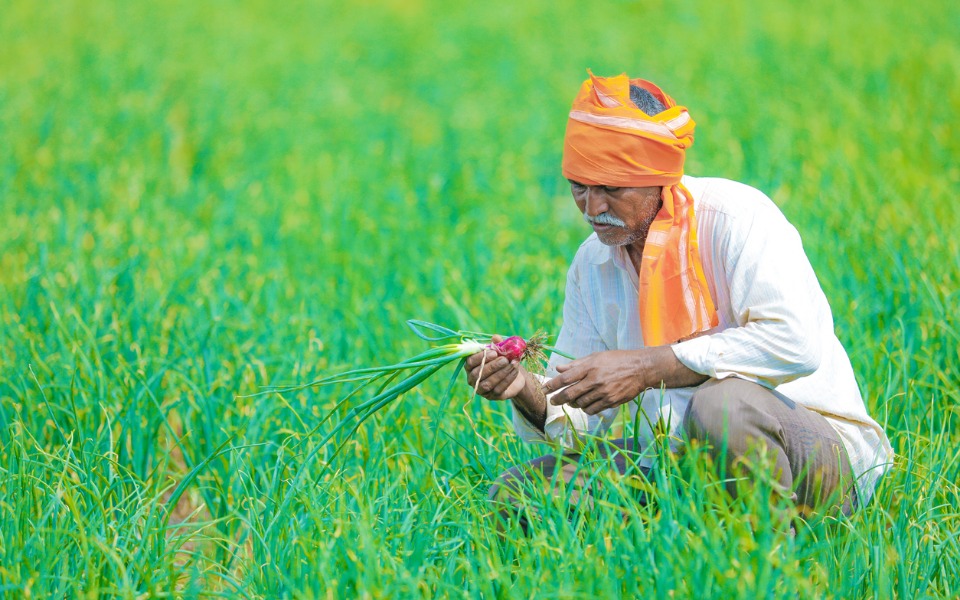
Scandal rocks PM Kisan scheme in TN; ₹110 crore flows to 'ineligible' accounts
The Pradhan Mantri Kisan Samman Nidhi in Tamil Nadu has been rocked by a ₹110-crore scam after the Centre relaxed registration guidelines in view of the COVID crisis, resulting in the minimum income support meant for small and marginal farmers ending up in ineligible accounts.

The Pradhan Mantri Kisan Samman Nidhi in Tamil Nadu has been rocked by a ₹110-crore scam after the Centre relaxed registration guidelines in view of the COVID crisis, resulting in the minimum income support meant for small and marginal farmers ending up in ineligible accounts.
The scam was perpetrated by brokers at e-service centres allegedly in connivance with officials of the agriculture department. The beneficiaries are unaware that the funds were not meant for them. They were fooled by the brokers who took details of their bank accounts and Aadhaar saying the government was offering ‘corona cash’.
Related news: Modi keeps poll promises, extends PM-Kisan scheme, flags off pension plans
They used the details to create fake beneficiary accounts through e-service centres for the Pradhan Mantri Kisan Samman Nidhi scheme. When the funds from the Centre were credited into the accounts of these ineligible farmers, the agents took a commission of ₹1,000 or ₹500 for helping them get the ‘corona cash’.
Gagandeep Singh Bedi, the principal secretary of agriculture in Tamil Nadu, in a press briefing on September 8, said ₹32 crore of the ₹110 crore has been recovered. “The remaining amount will be recovered in a couple of months,” he said.
He also said that 18 brokers have been arrested, 80 employees have been dismissed and 34 officials, including three assistant directors of the agriculture department, have been suspended. The dismissed staff includes personnel working at e-service centres and block-level officials.
The scam came to light in August when there was a sudden increase in the number of people claiming the benefit in some districts. In Cuddalore, for instance, there were 30,000 additional accounts than in the third instalment period. The district collector Chandra Sekhar Sakhamuri then ordered a probe, which revealed the beneficiaries are non eligible for the scheme.
Related news: Telangana’s Rythu Bandhu: not a bumper harvest for tenant farmers
The scam was not confined to Cuddalore alone. Further investigation revealed similar modus operandi was used in 13 other districts, including Kallakurichi and Villupuram, to swindle the Centre’s aid. In Villupuram and Kallakurichi alone, more than one lakh bogus beneficiaries were enlisted under the scheme.
In 2019, about 48,63,193 farmers registered for the scheme and 35,77,946 farmers received the money — a transfer rate of 74 per cent. In 2020, till March, 45,00,112 farmers received one instalment (the third yearly payment made for the December to March period). The transfer rate was 93 per cent.
Under the scheme announced in the interim budget ahead of the Lok Sabha elections in 2019, farmers with less than two acres of land are paid ₹6,000 annually in three instalments: the first instalment is paid for the months of April to July, the second for August to November and the third for December to March.
Earlier, farmers had to submit their land records to village administrative officers, who would verify if a person is eligible by visiting the land. The applications would then be processed through the district agriculture officers and cleared by collectors.
The whole physical verification process took a lot of time and only a limited number of farmers could enrol across the state. But, from March, due to the COVID-19 pandemic, the Centre relaxed the rules of the scheme and allowed farmers to self-register.
“A farmer had to visit an e-service centre for registration and provide details such as name, plot size, bank and Aadhaar card. Many ineligible farmers forged land documents (to show their holding is small), visited such centres and availed of the benefits. Brokers facilitated the process at the e-service centres,” said Kamal Ram, a farmer in Nagapattinam district.
It is mandatory for the e-service centres to take the survey numbers of the land and check them with government records to ensure such a land exists. But many don’t follow this process, said an agricultural department official from one of the western districts.
“After the application process, the agricultural department officials in district headquarters scrutinise the applications using a login and password given by the Centre. Every district has a unique login and password. These can be handled either by joint directors or assistant directors. The login or password cannot be changed by the officials. But often, after the scrutiny process, many don’t log out and so there is the possibility that the password could have been stolen,” said the official.
It is being alleged that department officials may have given the login and password to brokers, who could have used the details to create fake beneficiaries by approaching people and luring them with the ‘corona cash’ promise.


